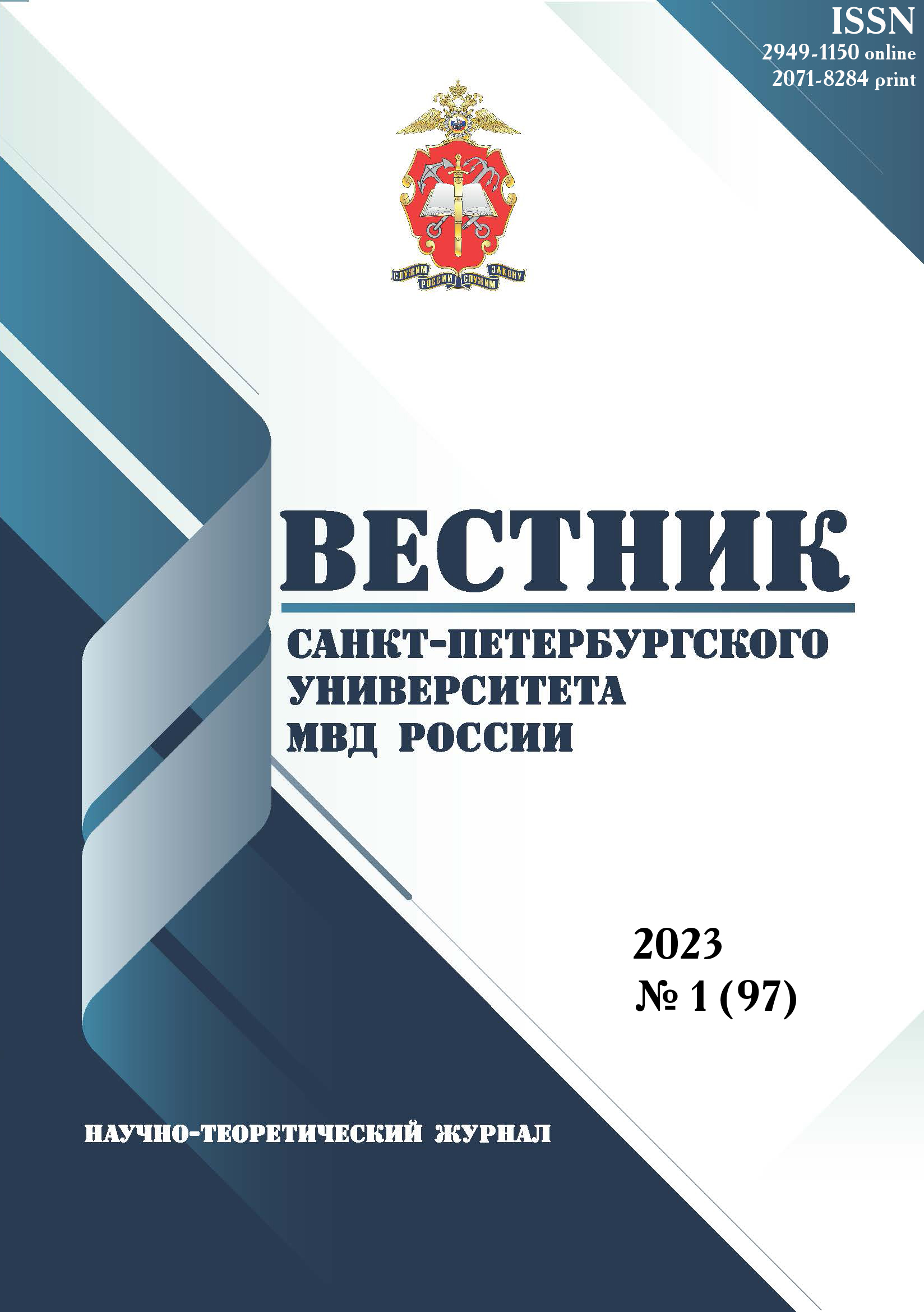Russian Federation
employee
St Petersburg, St. Petersburg, Russian Federation
Russian Federation
UDC 343.3/.7
UDC 343.5
Social networking is one of the most widespread forms of modern digital technologies today. Along with the undoubted advantages of interaction and communication between people on the Internet, the social network generates certain criminological risks, including those associated with the manifestation of various forms of deviant behavior and the creation of a new subculture. Socio-political tensions, economic problems, a decline in the general cultural level, media aggression, the Covid-19 pandemic, as well as the impersonality of the internet and its capabilities contributed to the emergence and rapid spread of online aggression. Netizens have transferred their values and personal problems to the virtual space. One of the manifestations of this deviant behavior is the trash streaming, which has not yet been legally defined. The media abounds with examples of violence, insults, humiliation of human dignity, harm to life and health committed during live broadcasts on the internet. The public and legislators have drafted a bill to amend and supplement the criminal law, proposing to criminalize the commission of such acts online. This article aims at exploring these legislative initiatives and proposals. The authors were therefore faced with the tasks of formulating a general concept of this phenomenon and analyzing the existing scientific literature and the bill criminalizing this negative phenomenon. The authors applied content analysis and general scientific methods, in particular, comparison, analysis and synthesis, statistical and deductive methods, which made it possible to formulate some general conclusions. The authors consider possible objective and subjective features of the act in question and make a conclusion about the need for additional work on the bill, taking into account, inter alia, the opinion of the scientific community.
bill, Internet, public morals, prevention, trash stream, criminal law
1. Abramovich E. O. Strim kak ugroza zdorov'yu naseleniya i obschestvennoy nravstvennosti // Obschestvo: politika, ekonomika, pravo. - 2022. - № 1 (102). - S. 41-44. - DOIhttps://doi.org/10.24158/pep.2022.1.6.
2. Agapov P. V., Ul'yanov M. V., Sal'nikov N. V. Protivodeystvie novym destruktivnym proyavleniyam v informacionno-kommunikacionnom prostranstve // Vestnik universiteta prokuratury Rossiyskoy Federacii. - 2021. - № 3 (83). - S. 86-92.
3. Gracheva Yu. V., Malikov S. V. Tresh-strim: social'naya obuslovlennost' kriminalizacii // Aktual'nye problemy rossiyskogo prava. - 2021. - № 16 (6). - S. 202-210.
4. Klimova Ya. A. Sovershenie prestupleniya v usloviyah tresh-strima: kriminalisticheskiy aspekt / Aktual'nye voprosy ohrany obschestvennogo poryadka i administrativnoy deyatel'nosti policii : materialy vnutrivedomstvennoy nauchno-prakticheskoy konferencii, Volgograd, 16-17 iyunya 2022 goda. - Moskva: OOO «Izdatel'stvo «Sputnik+», 2022. - S. 108-110.
5. Bogatyrev K. M. Tresh-kontent kak forma informacionnyh ugroz mediabezopasnosti v cifrovoy srede // Yurislingvistika. - 2022. - № 24 (35). - S. 38-43.
6. Polunina E. N., Antonova A. V. Problemy zakonodatel'nogo regulirovaniya otvetstvennosti za «tresh-strim» v Internete // Zakon i pravo. - 2021. - № 3. - S. 90-91.
7. Popov A. A., Altuhov S. A. Tresh-strim kak novyy kriminal'nyy fenomen: problemy zakonodatel'noy reglamentacii i otvetstvennosti / Pravovoe obrazovanie : sbornik nauchnyh statey / pod red. B. M. Magomedova, A. I. Vakula. - Rostov-na-Donu: Rostovskiy institut (filial) FGBOU VO Vserossiyskiy gosudarstvennyy universitet yusticii, 2021. - S. 253-257.
8. Fil'chenko A. P. Ohrana obschestvennoy nravstvennosti ot posyagatel'stv v forme pryamyh translyaciy protivopravnogo povedeniya (tresh-strimov) // Trudy Akademii upravleniya MVD Rossii. - 2021. - № 4 (60). - S. 90-100.
9. Carol M. Swain. The New White Nationalism in America: Its Challenge to Integration. - New York: Cambridge University Press, 2002. - 526 p.
10. Grigor'ev V. N., Terehov A. Yu. Ob usilenii ugolovnoy otvetstvennosti sozdateley tresh-strimov // Vestnik Volgogradskoy akademii MVD Rossii. - 2021. - № 2 (57). - S. 36-39.
11. Smirnov A. M. «Tresh-strimy» kak novaya kriminologicheskaya problema sovremennogo mira // Elektronnyy nauchnyy zhurnal «Dnevnik nauki». - 2021. - № 5 [Elektronnyy resurs] // Dnevniknauki. ru : sayt. - URL: http://dnevniknauki.ru/images/publications/2021/5/law/Smirnov.pdf (data obrascheniya: 13.12.2022).
12. Kulagina O. N., Milova K. A. Deyatel'nost' organov prokuratury po protivodeystviyu prestupnosti v seti internet // Vestnik PenzGU. - 2021. - № 4 (36). - S. 75-77.
13. Petryanina O. A., Suleymanov S. T. Konstitucionnye i ugolovno-pravovye voprosy differenciacii otvetstvennosti za kriminal'noe ispol'zovanie telekommunikacionnyh setey, vklyuchaya set' Internet: teoriya, tehnika, praktika // Vestnik RUK. - 2019. - № 2 (36). - S. 145-148.
14. Urban V. V. Prestupleniya, sovershaemye s ispol'zovaniem informacionno-telekommunikacionnyh setey: obschaya harakteristika i ugolovno-processual'nye mery po protivodeystviyu // Vestnik Vostochno-Sibirskogo instituta MVD Rossii. - 2019. - № 1 (88). - S. 55-63.














